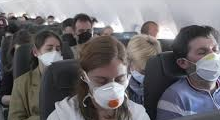Rising Dengue Cases Prompt Urgent Attention to Warning Signs and Preventive Measures

The recent surge in dengue cases across the nation underscores the critical need for heightened awareness of the warning signs associated with the illness. Dr. Aaron Lai, an emergency physician at Sunway Medical Centre, emphasizes the significance of early detection to enable prompt treatment and reduce the risk of complications.
READ: OAS to Step in as Mediator in Guatemala’s Power Transition Crisis
Table of Contents
Warning Signs and Symptoms of Dengue Infection
Dr. Lai, referring to the Ministry of Health’s Clinical Practice Guideline, stresses the importance of monitoring specific warning signs. These include abdominal pain, persistent vomiting (over three times a day), persistent diarrhea (over three times a day), drowsiness, difficulty breathing, spontaneous bleeding from gums or nose, and black-colored stool. Patients exhibiting severe symptoms or belonging to vulnerable groups should prioritize seeking medical attention at an emergency department.
Common symptoms of dengue fever include headache, generalized body aches, rashes, and pain behind the eyes. While these symptoms may resemble common illnesses like flu, often manifests with more severe muscle and joint pain, potentially progressing to complications like dengue hemorrhagic fever (DHF) or dengue shock syndrome (DSS).
Diagnostic Process for Dengue Fever
The diagnostic process involves a combination of clinical assessment and laboratory tests. Doctors assess symptoms, recent travel history, and the patient’s residence in dengue-endemic areas. Laboratory tests include rapid dengue combo tests, serology testing for antibodies, and viral RNA detection. A full blood count is conducted to measure platelet counts, white blood cell counts, hematocrit level, and red blood cell counts. Imaging such as chest x-rays or ultrasounds may be performed in severe cases.
Stages of Dengue Infection
Febrile Phase: Lasting three to five days, this phase includes fever, joint pain, muscle pain, and other symptoms. Progressive decreases in white cell and platelet counts are observed.
Critical Phase: Lasting 48 to 72 hours, this phase may involve circulatory disturbances. Severe cases exhibit complications like internal bleeding, water retention, low blood pressure, and organ failure.
Recovery Phase: Dengue symptoms subside, and blood platelets and white blood cells return to normal.
Factors and Mitigation Measures
Malaysia witnessed an 86.3% increase in dengue cases in 2023 compared to 2022. Dr. Lai attributes this rise to climate factors such as temperature and rainfall patterns, creating favorable conditions for mosquito breeding. Mitigation measures include using mosquito repellents, installing mosquito nets, eliminating stagnant water sources, wearing long-sleeved clothes, and maintaining cleanliness.
Dr. Lai underscores the urgency of consulting healthcare professionals for accurate diagnosis and appropriate treatment, especially cautioning against the use of non-steroidal anti-inflammatory drugs (NSAIDs) like aspirin. He recommends vigilance and preventive measures to curb the transmission dynamics of dengue in high-risk areas.






